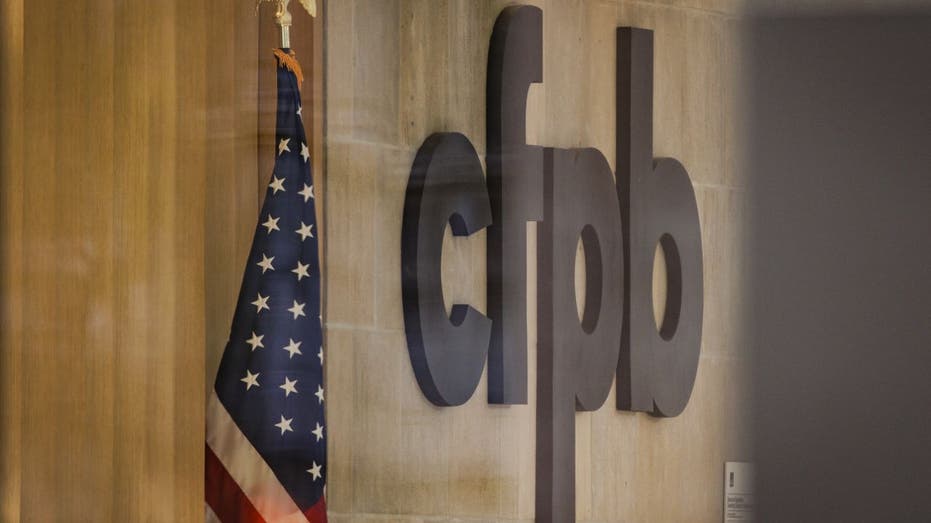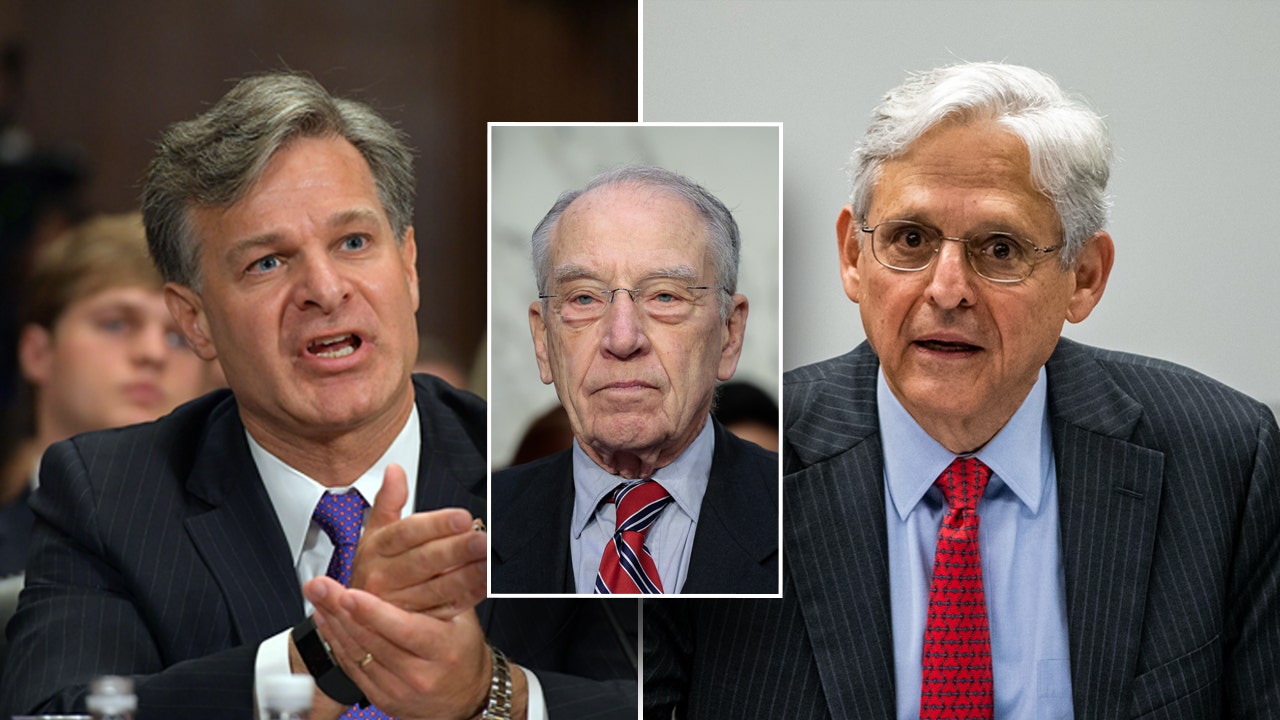Additional reporting by Jorgelina do Rosario, Amanda Cooper and Alun John in London; Writing by Michael Georgy and Anousha Sakoui; editing by John O’Donnell and Susan Fenton
Finance
As Israel-Hamas war rages, finance chiefs meeting in Saudi pessimistic
/cloudfront-us-east-2.images.arcpublishing.com/reuters/2HNW64MKWZPCHGP4G4QAKGP434.jpg)
RIYADH, Oct 24 (Reuters) – Wall Street’s top financiers struck a pessimistic tone about the economy at a flagship gathering in Saudi Arabia aimed at deal brokering, as a violent conflict between Israel and Hamas that has killed thousands of people unfolds.
The annual event is typically used by attendees as an opportunity to build relationships with some of Saudi Arabia’s biggest companies and its $778-billion sovereign wealth fund, drawn by the promise of deals as the kingdom embarks on an ambitious reform plan to wean its economy off oil.
But an escalation between Islamist group Hamas and Israel into a broader conflict overshadowed the event dubbed “Davos in the Desert”, a nod to the annual gathering of world leaders and corporate bosses in the Swiss Alps.
Although the globe’s top financiers dwelt little on the conflict, speaking about topics such as artificial intelligence, the economic fallout of war combined with record debts as rates rise created a bleak backdrop.
“There’s no question if these things are not resolved, it probably means more global terrorism, which means more insecurity, which means society is going to be fearful … and … we see contractions in our economies,” BlackRock Chairman and CEO Laurence Fink said.
Fink was flanked on a panel at the Future Investment Initiative (FII) conference by bank CEOs including Goldman Sachs’ (GS.N) David Solomon, JPMorgan’s (JPM.N) Jamie Dimon and Citi’s (C.N) Jane Fraser. They spoke about topics including women in the workplace but also the implications of rising interest rates.
Ray Dalio, founder of hedge fund Bridgewater Associates, said he was pessimistic.
“If you take the time horizon, the monetary policies that we’re going to see and so on, will have greater effects on the world,” Dalio said. “And you look at the world gaps, so it’s difficult to be optimistic on that.”
HSBC Group CEO Noel Quinn also warned of the perils of heavy government debts. “I’m concerned about a tipping point on fiscal deficits,” he said. “When it comes, it will come fast and I think there are a number of economies in the world where there could be a tipping point and it will hit hard.”
The remarks come as Israel’s military said it was preparing for “unrelenting attacks” to dismantle Hamas. Former U.S. President Barack Obama warned that “any Israeli military strategy that ignores the human costs could ultimately backfire.”
The conflict could upset the stability of the Middle East just as regional powerhouse Saudi Arabia pours hundreds of billions of dollars into a vast economic transformation plan.
Saudi Arabia is putting U.S.-backed plans to normalise ties with Israel on ice, two sources familiar with Riyadh’s thinking said, signalling a rapid rethinking of its foreign policy priorities as war rages between Israel and Hamas.
But the finance chiefs were mostly focused on business.
The last year has seen Saudi Arabia spend billions on companies, from sports to gaming to aviation. This year, Saudi Telecom Corp (7010.SE) took a near 10% stake in Spain’s Telefonica (TEF.MC).
“While today’s world seems uncertain, we continue with our mandate to inspire … the future of business and future-proof our societies to create a more stable and resilient world order,” Yasser al-Rumayyan, governor of Saudi Arabia’s sovereign Public Investment Fund, told the conference.
Goldman Sachs’ Salomon addressed the potential for more dealmaking after this week’s announcement by U.S. energy giant Chevron (CVX.N) that it had agreed to buy Hess (HES.N) for $53 billion.
“Over time, scale matters enormously in the competitive nature of global businesses and so M&A activity can ebb and flow and as people become more certain of the environment,” he said.
Stephen Schwarzman, co-founder, chairman & CEO of the Blackstone Group, flagged the threat to investors in office buildings, now often empty in the wake of the pandemic.
“Say you have 30% unused space in office buildings, that means those office buildings are not survivable as economic entities. So that’s going to have a very bad ending,” Schwarzman said.
More than 5,000 people registered to attend this year’s Future Investment Initiative and only a handful withdrew due to current events.
Saudi Crown Prince Mohammed bin Salman has sought to lift the kingdom’s profile to secure investment and trade alliances, seeking dialogue with former regional foes, and pivoting to Eastern partners amid strains with U.S. President Joe Biden’s administration.
This year’s forum is meant to demonstrate that eastward shift. There will be 70 speakers from Asia, of whom 40 will be Chinese, FII Institute CEO Richard Attias told Reuters.
Saudi Arabia is halfway through an ambitious economic transformation plan – Vision 2030 – to wean the economy off oil by creating new industries, generate jobs for citizens, and to lure foreign capital and talent.
FII is partially aimed at attracting investment to fund this, a daunting task as total foreign investment flows in this year’s second quarter were down.
Our Standards: The Thomson Reuters Trust Principles.

Finance
Shropshire Council asks for urgent government financial support

Shropshire Council has asked the government for urgent financial support to allow it to continue delivering services.
The authority said a detailed review of its budget is expected to reveal it could overspend by £50m if nothing is done and its savings of £34m would not be enough to meet the shortfall.
Unless more money can be found, the council said it would have to issue a Section 114 notice, making it effectively bankrupt.
The council declared a “financial emergency” last month and said it would be “making some difficult decisions over the next few weeks and months to save money and bring more in”.
The Liberal Democrat-run authority said the review, which is due to be published on 10 November, showed “the true scale of the financial challenge”.
If it has to issue a Section 114 notice, the government could then take action to reduce spending through the appointment of commissioners, as it has done in Birmingham.
The council said it had had several conversations with the government about the issue, which were initially focused on “longer-term funding the council needs over the next three years to enable it to invest in transformation, stabilise its budget and bring an end to its financial emergency”.
But the growing budget pressures have since forced the council to ask for emergency funding.
The authority was run by Conservatives until the Liberal Democrats took control in May.
Roger Evans, the councillor responsible for finance, said: “For a number of years now the council has been overspending its budget – a budget that was set by the previous administration.”
He said the council had been using reserves to meet the deficit and there was now “none left for us to use to help us meet this shortfall”.
Evans also said a shortage of government funding over the years had been “contributing hugely to our financial challenge”.
He thanked staff for their efforts to meet the budget shortfall and added: “Despite our challenges, I truly believe that together, we can make Shropshire Council sustainable.”
Finance
Finance Trailblazer Donna Gambrell Receives 2025 Ned Gramlich Lifetime Achievement Award for Responsible Finance

Opportunity Finance Network gives its highest honor to Gambrell for her career-long commitment to expanding economic opportunity in rural, urban, and Native communities through community development finance
WASHINGTON, Oct. 23, 2025 /PRNewswire/ — Last night, Opportunity Finance Network (OFN), the nation’s leading network and intermediary focused on community development investment, presented Donna Gambrell with the 2025 Ned Gramlich Lifetime Achievement Award for Responsible Finance during The Opportunity Honors: Award Ceremony and Reception. The Gramlich Award is the community development finance industry’s highest individual honor recognizing people of distinction and their impact on the community development financial institution (CDFI) industry.
Donna Gambrell receives the 2025 Ned Gramlich Lifetime Achievement Award for Responsible Finance during The Opportunity Honors in Washington, D.C.
As Director of the U.S. Department of the Treasury’s CDFI Fund (2007–2013), Gambrell helped double funding through the flagship Financial Assistance Awards program and launched cornerstone initiatives—including the Capital Magnet Fund, Healthy Food Financing Initiative, and the CDFI Bond Guarantee Program—that expanded the reach of CDFIs nationwide. Following federal service, she joined OFN’s Board of Directors in 2017 and served as Chair from 2020–2024, guiding the network through the COVID-19 response and sector stabilization.
“Donna Gambrell has dedicated her career to expanding economic opportunity for communities long excluded from traditional finance,” said Harold Pettigrew, President and CEO of OFN. “As a trailblazer and fierce advocate, Donna has grown and expanded the organizations she led, helping community development finance to reach more people and underinvested communities. Donna is a titan of the community development finance industry, and the impact of her work can be felt in almost every community across our nation.”
Today, as President & CEO of Appalachian Community Capital (ACC), Gambrell leads a membership network with more than 40 members managing $4 billion in assets and supporting 20,000 regional businesses. Under her leadership, ACC has advanced initiatives such as Opportunity Appalachia—helping 80+ communities raise over $160 million for priority projects—and launched the Green Bank for Rural America to catalyze climate-smart investment in rural markets.
“Local communities know what they need to best support themselves, and CDFIs put the power back in their hands,” said Gambrell. “That’s what first drew me to community development finance; watching communities thrive and people build generational wealth because of CDFIs is what continues to inspire me many years later. It is an honor to receive the Gramlich Award, and I am grateful to my peers for this recognition of my career.”
Gambrell was also the first African American woman to lead the CDFI Fund—an important accomplishment that underscores a career defined by durable institutional achievements and industry-wide impact.
“Not only is Donna Gambrell a tireless champion for equitable community and business development, but she is a mentor and role model to so many in the industry,” said Darrin Williams, CEO of Southern Bancorp, Inc. “Donna brings people together to help advance community development finance and bolster connections to support communities across all areas of the country. I am proud to call her a colleague, friend, and inspiration.”
About the Ned Gramlich Lifetime Achievement Award for Responsible Finance
Established in 2007, the Ned Gramlich Lifetime Achievement Award for Responsible Finance is the community development finance industry’s highest individual honor. It is awarded annually at OFN’s Annual Conference to individuals whose careers exemplify leadership, integrity, and a deep commitment to expanding economic opportunity.
The spirit of the award is to celebrate people of distinction who have produced a body of work that sets them apart within the CDFI industry. These individuals have shaped the field through innovation, institution-building, and a relentless focus on impact—leaving a legacy that continues to influence the sector and the communities it serves.
The award is named for Ned Gramlich, a staunch, longtime advocate for responsible finance. As the former Board of Governors’ primary liaison to the Federal Reserve’s Consumer Advisory Council, Gramlich advised on community development and consumer finance policy matters. He was an outspoken voice against predatory lending and a strong defender of the Community Reinvestment Act. He served on the OFN Board of Directors from October 2006 until his death in 2007.
About Opportunity Finance Network
Opportunity Finance Network (OFN) is the nation’s leading network and intermediary focused on community development investment, managing more than $1 billion in total assets and a membership of more than 490 community development financial institutions (CDFIs), which includes community development loan funds, credit unions, green banks, banks, minority depository institutions, and venture capital funds. Our network of CDFIs works to ensure communities left behind by mainstream finance have access to affordable, responsible financial products and services, with a deep focus on serving rural, urban, and Native communities across the United States. OFN is a trusted investment partner to the public, private, and philanthropic sectors – foundations, corporations, banks, government agencies, and others – and, for more than 40 years, has helped partners invest in communities to catalyze change and create economic opportunities for all.
Since its founding in 1986, OFN members have originated $124 billion in cumulative financing, helping to create or maintain nearly 3.4 million jobs, start or expand more than 1 million businesses and microenterprises, and support the development or rehabilitation of more than 3 million housing units and more than 15,000 community facility projects.
SOURCE Opportunity Finance Network
Finance
State treasurers push CFPB on third-party financial data access rule

Rep. Byron Donalds, R-Fla., on his bill to eliminate the Consumer Financial Protection Bureau, Elon Musks directive to federal workers over documenting work, Congress budget reconciliation process and his political future.
A dozen state financial officers are writing to the Consumer Financial Protection Bureau (CFPB) to uphold consumers’ right to share financial data with authorized third parties as the agency weighs a rule that could restrict their ability to do so, according to a letter exclusively reviewed by FOX Business.
The CFPB is considering revising a regulation under section 1033 of the Dodd-Frank Act, which would revise the definition of a “representative” who makes a request on behalf of the consumer, as well as how to assess fees to cover costs incurred by a covered person responding to a customer request.
Twelve state financial officers — including nine treasurers, two auditors and one controller — wrote in favor of the rule recognizing consumer-authorized third parties as “representatives” while preserving existing authorization and conduct requirements.
They wrote that Section 1033 gives consumers a right to access their financial information upon request and that the rule includes agents, trustees or representatives acting on their behalf, including those who aren’t fiduciaries, upon the consumer’s authorization, which is the “touchstone” of the process that needs to be preserved.
KEY GOP LAWMAKERS BACK TRUMP’S EXECUTIVE ORDER FOR CRYPTO, OTHER ALTERNATIVE ASSETS IN 401(K) PLANS
A dozen state financial officers are arguing for the CFPB to preserve the ability of consumers to authorize non-fiduciary representatives to access their data. (Anna Moneymaker/Getty Images)
“Preserving this interpretation promotes competition and innovation (including for real-time payments, budgeting tools, alternative credit assessment, AI, and crypto) and it reduces the risks of debanking and market concentration,” the financial officers wrote.
“In contrast, narrowing ‘representative’ would harm consumers by reducing choice and entrenching incumbents — outcomes counter to Section 1033’s competitive purpose,” they explained.
The group of state financial officers wrote that the CFPB should affirm the text of the rule by clarifying that a consumer-authorized third-party qualifies as a representative acting on their behalf.
SEC CHAIR WANTS PRIVATE MARKET INVESTMENTS AVAILABLE FOR AMERICANS’ 401(K) PLANS

The CFPB’s proposed rule is revising regulations under the Dodd-Frank Act. (Samuel Corum/Bloomberg via Getty Images)
They also wrote the definition of “representative” shouldn’t be limited to fiduciary relationships as it’s not required by the text and would “unduly restrict consumer choice.”
“Consumers should be able to exercise their Section 1033 rights directly or through an authorized representative of their choosing. A text-faithful interpretation of ‘representative’ sustains competition and innovation and reduces risks of debanking and market concentration,” the state financial officers explained.
State financial officers who signed onto the letter include Kansas Treasurer Steven Johnson, Kentucky Treasurer Mark Metcalf, Mississippi Treasurer David McRae, Nebraska Auditor Mike Foley, Nebraska Treasurer Tom Briese, Nevada Controller Andy Matthews, North Dakota Treasurer Thomas Beadle, Ohio Treasurer Robert Sprague, South Carolina Treasurer Curtis Loftis, Utah Auditor Tina Cannon, Utah Treasurer Marlo Oaks and Wyoming Treasurer Curt Meier.
ANTI-WOKE GROUPS IN US AND FRANCE JOIN FORCES TO COMBAT DEBANKING AND CORPORATE IDEOLOGICAL POLICIES

The state financial officers want to ensure consumers can authorize a third party to look at their financial data. (Yuki Iwamura/AFP via Getty Images)
The public comment period for the CFPB’s rule closed on Tuesday night and the rule attracted nearly 14,000 comments.
Sen. Cynthia Lummis, R-Wyo., sent a letter to the CFPB in support of open banking policies as the agency considers the rule, while consumer groups have also weighed in.
“Major financial institutions are attempting to consolidate their power and maintain monopolistic control over consumer data,” Will Hild, executive director of Consumers’ Research, said in a statement.
GET FOX BUSINESS ON THE GO BY CLICKING HERE
“If these major banks are allowed to continue to control access to consumer data, they will have even greater leverage to punish Americans for their beliefs and to coerce compliance with their radical left-wing ideology.”
-

 World3 days ago
World3 days agoIsrael continues deadly Gaza truce breaches as US seeks to strengthen deal
-

 News2 days ago
News2 days agoVideo: Federal Agents Detain Man During New York City Raid
-

 Technology3 days ago
Technology3 days agoAI girlfriend apps leak millions of private chats
-

 News3 days ago
News3 days agoTrump news at a glance: president can send national guard to Portland, for now
-

 Business3 days ago
Business3 days agoUnionized baristas want Olympics to drop Starbucks as its ‘official coffee partner’
-

 News3 days ago
News3 days agoBooks about race and gender to be returned to school libraries on some military bases
-

 Politics3 days ago
Politics3 days agoTrump admin on pace to shatter deportation record by end of first year: ‘Just the beginning’
-
Science3 days ago
Peanut allergies in children drop following advice to feed the allergen to babies, study finds




















